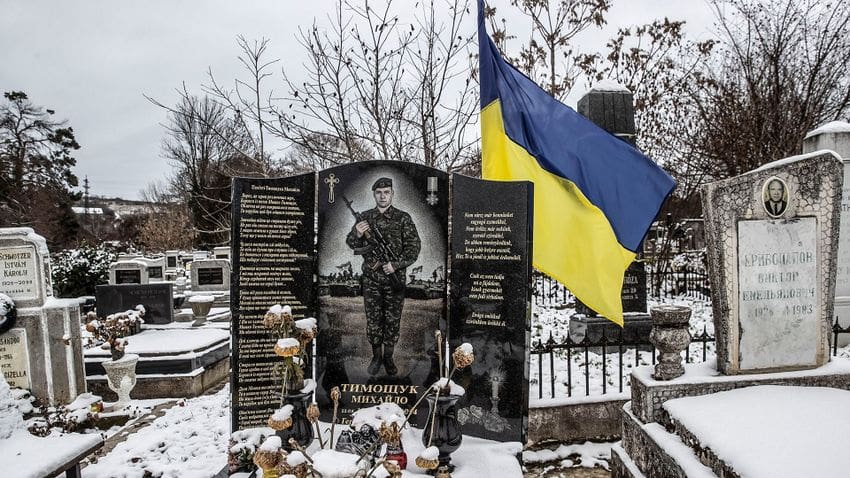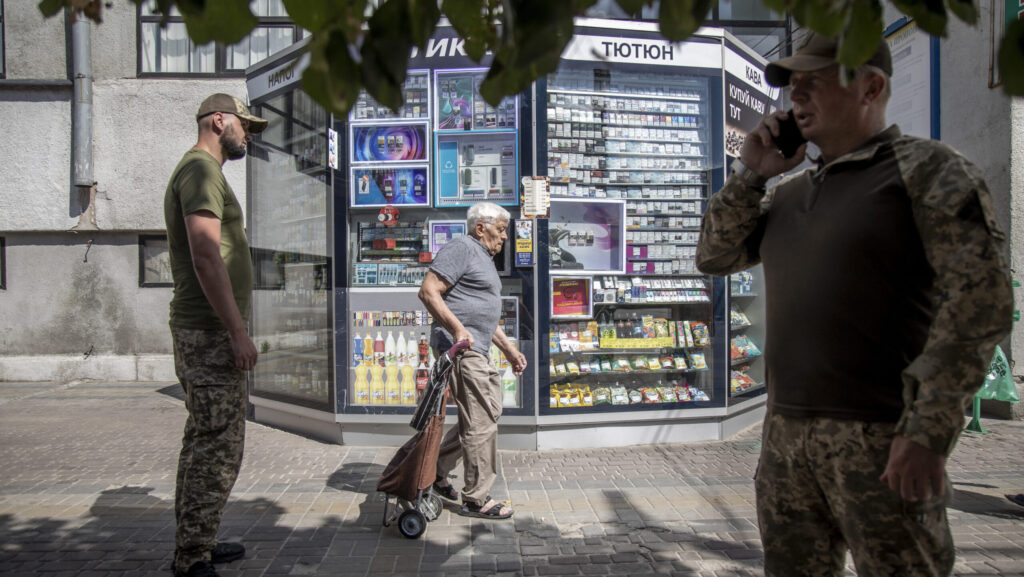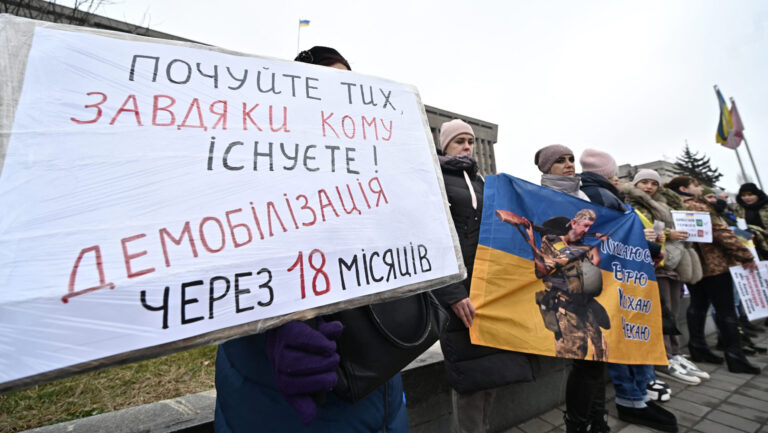The following is a translation of a Magyar Nemzet article by Dávid László.
The 128th Brigade of Transcarpathia has lost another man. Iván Fejer has been serving since day one of the war. He was born in 1981 in Ardánháza (Ardanovo), Ukraine. He sadly passed away on 18 January, succumbing to the serious injuries he sustained near Bakhmut. Sergeant Ivan Hluhanics, the commander of the anti-tank missile battalion of the 128th brigade also lost his life in action. The 48-year-old soldier from Mércse (Myrcha) died on 14 January. These are just two obituaries published in the Transcarpathian press on 20 January. Meanwhile, almost no day goes by without a report on new casualties.
What’s worse, this may just be the tip of the iceberg.
According to information obtained by Magyar Nemzet, a morgue near Munkács (Mukachevo) has already filled up to capacity. The identification and release of corpses have been deliberately slowed down. The paper’s sources claim that underreporting the number of victims of war has been a common practice for a while now, not publicly announcing the deaths of more than five or six fallen soldiers in a day. This is done presumably to avoid causing mass hysteria, and to paint the Ukrainian military’s standing in a better light. Lat year, when the death of seven soldiers was announced on the same day, an official day of mourning was ordered.
In Ukraine, the exact number of casualties is considered a state secret. Whoever violates this rule, even by just by posting something to social media, can expect an actual prison sentence. If some kind of statistics does get published, it is usually hard to take seriously. For example, last December, the Ukrainian side confirmed 10–12 thousand soldiers killed in action, while claiming that the Russians had lost 100–120 thousand men. Although military experts agree that the offensive side tends to suffer more casualties, the 10:1 ratio is highly unlikely. Credible Western estimates, along with the ‘slipups’ of Western political figures, suggest that the losses on both sides have exceeded 100 thousand.
In the absence of official data, evidently, we cannot have accurate statistics for specific regions or national minorities. Thus, we cannot know exactly how many Transcarpathians, and how many Hungarians have given their lives. The Military Governor of Transcarpathia, Viktor Mikita, has talked about ‘hundreds’ of fallen heroes from the region. It may just be a cursory method for calculation, but as we wrote above, there is no day passing by without the local press reporting on a handful of front-line deaths. Based on this, the number of casualties since the start of the war has by far surpassed 1,000 in the region. And Hungarians, who made up about 10 to 15 per cent of the local population before the war, are not exempt from the draft either. In a January article published in the Transcarpathian paper Magyar Szó, Ungvár (Uzhorod) Consul László Kuti spoke about 12 Hungarian soldiers having fallen—the Hungarian Foreign Ministry provides financial aid to the families of all Hungarian victims of the war. However, estimates have put the number closer to 100 recently.
What is known for certain is that most Hungarian men are serving in the 128th Mountain Infantry Brigade. This unit has been deployed in the heaviest combat situations. It is cause for concern that some partially confirmed reports from Russia have claimed that the 128th Brigade has been ‘destroyed’ during the siege of Soledar. According to the Russians, the Ukrainians lost 20 to 25 thousand troops, which is unlikely—such a bloodbath would have had catastrophic consequences and we are seeing no signs of that. Nevertheless, both sides have likely suffered losses in the tens of thousands, including those injured. This seems to be confirmed by the news that the 128th Brigade has apparently been finally called back from the front lines.
Magyar Nemzet has information that many are perplexed
why it is always the Transcarpathian units that are being sent into the fiercest combat situations.
And this has been the case before, too. The 128th brigade suffered heavy losses, with confirmed ethnic Hungarian casualties, in 2015 in the infamous Debaltseve Cauldron. Since the start of the Russian invasion last year, the brigade has been fighting in the bloodiest combats, first at Kherson, then in the ‘meatgrinders’ of Bakhmut and Soledar. This can be partly explained by their special training—even the Russians consider them one of the most capable units in the Ukrainian military. However, some believe that the Ukrainian military leadership is more willing to send units to the front lines that have a high number of minorities. It is also unclear why troops are not rotated, so that the unit could regenerate before the next engagement.
Soldiers on leave in Transcarpathia who wished to remain anonymous spoke to Magyar Nemzet about their experience on the Eastern front as ‘indescribable, utter hell’.
It is no wonder that many do the utmost to avoid having to return to the battlefield. Although the Ukrainian government does not publicise the losses, everyone has acquantainces who are serving, and everybody can see the dead returning in coffins, so drafting men is becoming ever more difficult. In Transcarpathia, people are being rounded up by force. In addition, the chance of peace talks is nowhere in sight, and with the new weapons arriving the war is bound to become even more destructive.
‘Why is it glorious to die for your country? I would prefer to live for her!’ exclaimed one Hungarian serviceman returning from the front line.
Click here to read the original article








